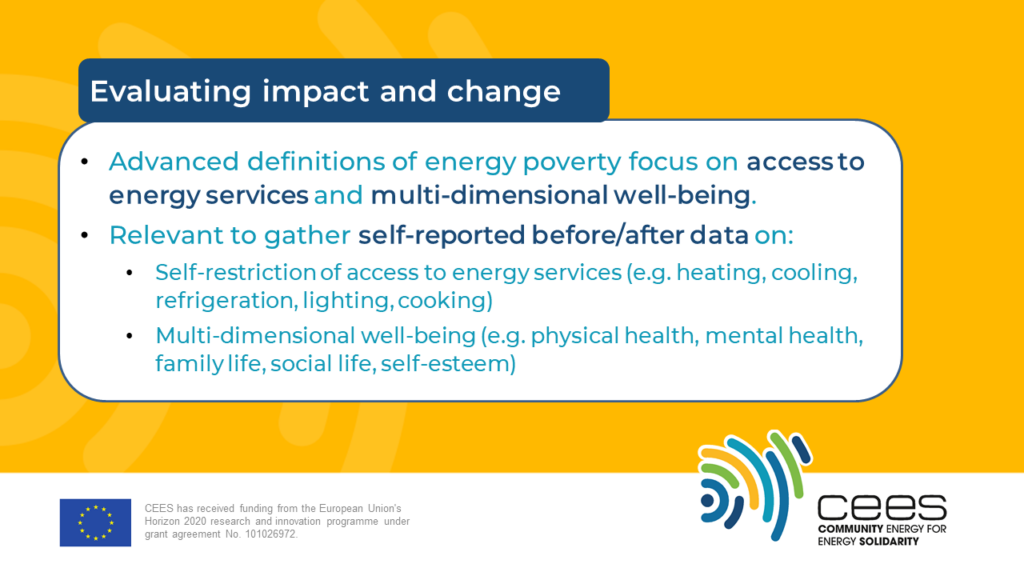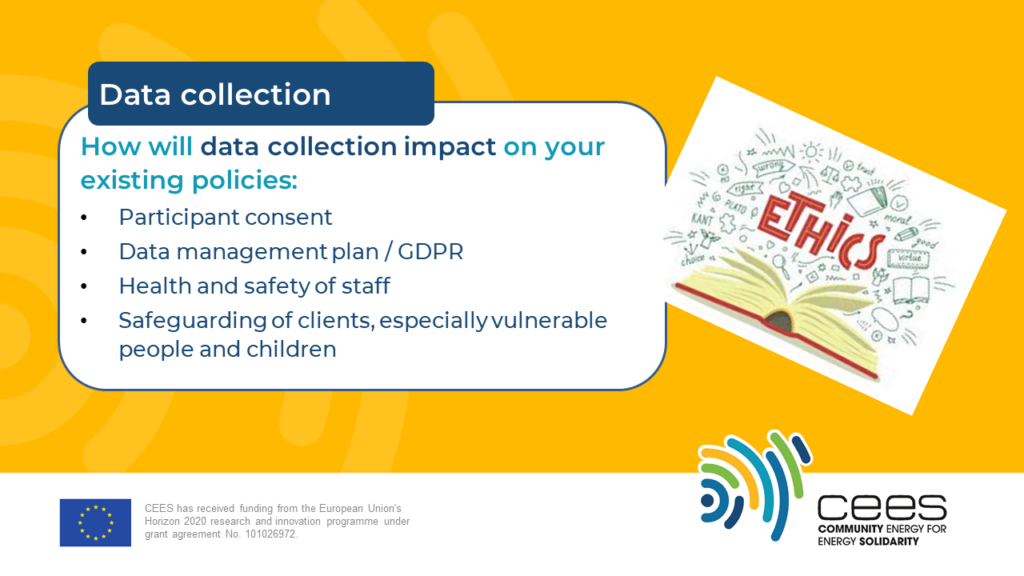Energy communities (ECs) aiming to get involved in tackling energy poverty are strongly advised to plan for evaluation at the outset. Being able to demonstrate impacts and efficacy will support sharing of best practices, and can be critical to secure future funding.
Session 5 (of 5) of the full-day webinar series featuring the Community Energy for Energy Solidarity (CEES) project focused on evaluation, including covering how it is distinct from measuring impacts.
- measuring impacts refers to assessing the extent to which projects alleviate energy poverty for households.
- evaluation is broader in scope, typically covering analysis of whether a programme, project, practice, intervention or initiative is achieving its goals – and why (or why not).
In the first half, presenter Dr. Kevin Burchell (University of Birmingham) walked participants through the types of things one can measure or evaluate. He also described various approaches to and aspects of evaluation:
- 360° involves gathering information from all participants (households, project team, project partners, etc.)
- impact seeks to measure change between before and after the intervention
- process considers the experiences of the intervention for all people involved
- formative aims to provide feedback as the project progresses, and
- summative focuses on providing insight and understanding after a project.
In turn, Dr. Burchell explained why such data and information may be of interest to funders, partners and policy makers. He then shifted the focus to considerations relevant to tackling energy poverty. In addition to defining what they want to measure and evaluate and why, ECs need to be aware of ethical practices.


Dr. Burchell also emphasised the importance of balancing evaluation needs with not overburdening vulnerable people and staff who carry heavy workloads on a sensitive topic.
Evaluation has been built into CEES to support eventual development (in 2024) of an Energy Solidarity Toolkit. The Toolkit will include examples of projects by which ECs have effectively tackled energy poverty as well as methods for measuring impact and evaluating projects.
Watch the full webinar on youtube.
Or check out blogs and links to the other sessions:
- Community energy for energy solidarity: A timely approach for a more just future (Session 1)
- Identifying and engaging with people in energy poverty and other stakeholders (Session 2)
- Taking action to alleviate energy poverty through hard or soft measures (Session 3)
- Building support for ECs to tackle energy poverty: legal, regulatory and financing aspects (Session 4)